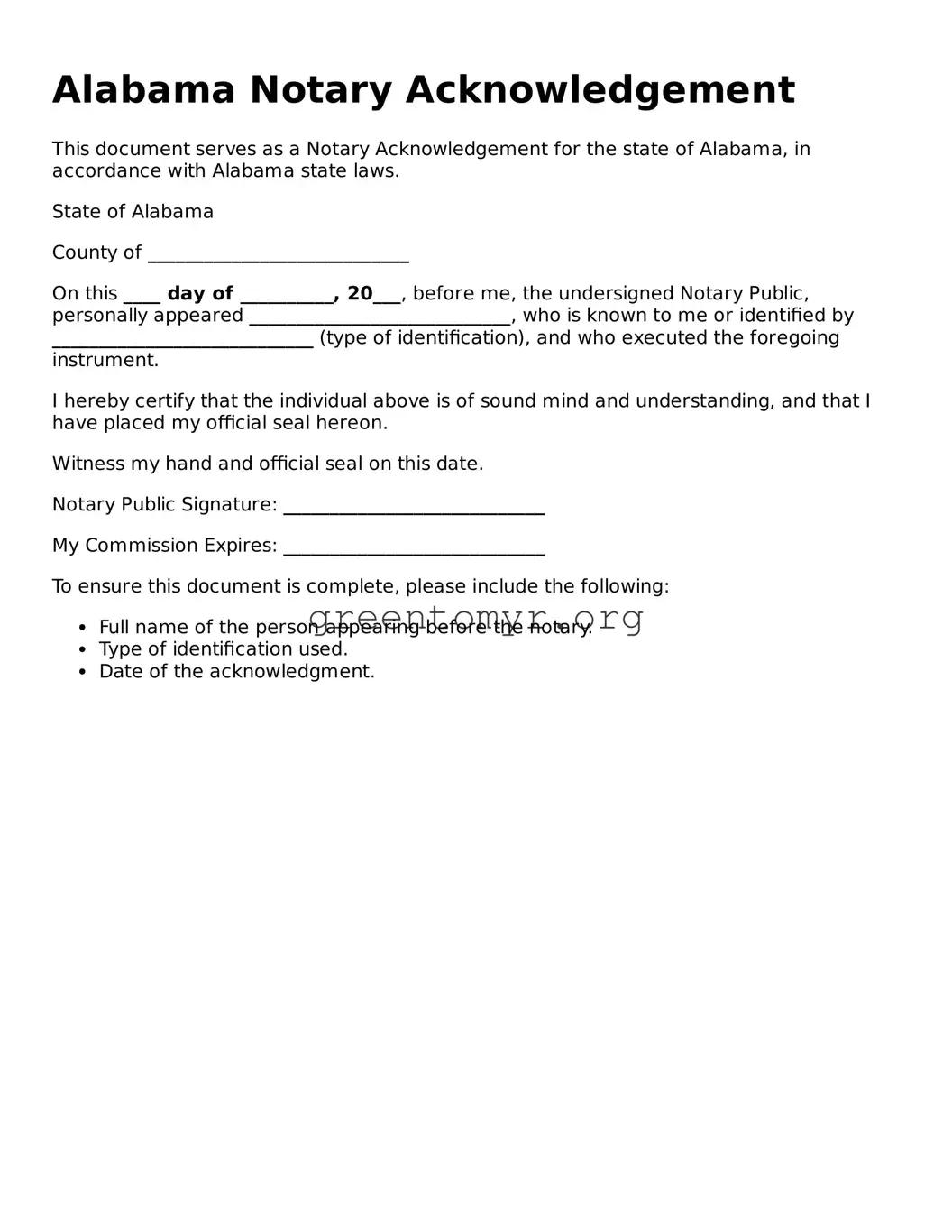Alabama Notary Acknowledgement
This document serves as a Notary Acknowledgement for the state of Alabama, in accordance with Alabama state laws.
State of Alabama
County of ____________________________
On this ____ day of __________, 20___, before me, the undersigned Notary Public, personally appeared ____________________________, who is known to me or identified by ____________________________ (type of identification), and who executed the foregoing instrument.
I hereby certify that the individual above is of sound mind and understanding, and that I have placed my official seal hereon.
Witness my hand and official seal on this date.
Notary Public Signature: ____________________________
My Commission Expires: ____________________________
To ensure this document is complete, please include the following:
- Full name of the person appearing before the notary.
- Type of identification used.
- Date of the acknowledgment.
